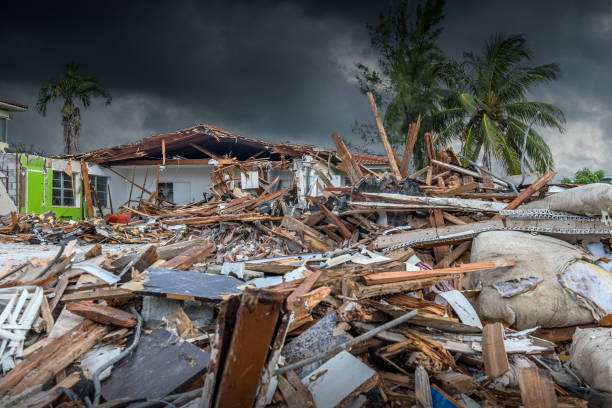California, known for its seismic activity, raises an important question for its residents: “Should you get earthquake insurance?” This query is especially relevant in a state where earthquakes are not just a possibility, but a frequent reality. In this article, we’ll delve into the considerations surrounding earthquake insurance in California, examining the risks, the coverage options, and the financial implications of such policies.
Earthquake insurance is a specialized type of property insurance designed to cover damages caused by earthquakes, which are typically not covered under standard homeowners’ or renters’ insurance policies. For Californians, deciding whether to invest in earthquake insurance involves weighing the potential risks against the costs of the policy. We will explore the nature of earthquake risks in California, what earthquake insurance typically covers, and the factors homeowners and renters should consider when deciding on this additional coverage.
Should You Get Earthquake Insurance in California?
Understanding Earthquake Risks in California
- Seismic Activity: California is one of the most seismically active states in the U.S., with a high likelihood of experiencing significant earthquakes. This includes areas along the San Andreas Fault and other less known fault lines.
- Potential for Damage: The intensity of earthquakes can vary, but even moderate ones have the potential to cause substantial damage to buildings, homes, and infrastructure.
Coverage Options in Earthquake Insurance
- Structural Damage: Earthquake insurance typically covers the cost of repairing or rebuilding a home if it’s damaged by an earthquake. This includes structural integrity and foundational damage.
- Personal Property: Policies can also cover damage to personal property within the home, such as furniture and electronics.
- Additional Living Expenses: If an earthquake renders a home uninhabitable, many policies provide coverage for additional living expenses incurred during repairs, like temporary housing costs.
Cost-Benefit Analysis
- Premiums vs. Potential Damages: The cost of earthquake insurance premiums in California can be high, and deductibles are often substantial. Homeowners need to weigh the cost of premiums and deductibles against the potential financial impact of earthquake damage.
- Home Value and Location: The value of the home and its location relative to known fault lines can influence both the risk level and the cost of insurance.
- Building Age and Construction: Older homes or those not built to current seismic standards may be at higher risk and cost more to insure.
Making an Informed Decision
- Risk Assessment: Evaluate your home’s vulnerability to earthquakes based on location, construction type, and local history of seismic activity.
- Financial Preparedness: Consider whether you can financially handle repairs without insurance in the event of an earthquake.
- Insurance Shopping: If you decide to purchase insurance, shop around for policies to compare coverage and rates. Look into what is covered and what exclusions apply.
- Consultation with Experts: It might be beneficial to consult with insurance experts or financial advisors to understand the best options for your specific situation.
Conclusion: Deciding on Earthquake Insurance in California
In concluding our exploration of whether you should get earthquake insurance in California, the decision largely hinges on individual circumstances, risk tolerance, and financial capacity. Given California’s high susceptibility to earthquakes, this insurance can play a crucial role in protecting homeowners and renters from potentially devastating financial losses.
Key Considerations for Californians
- Personal Risk Assessment: Homeowners and renters should assess their personal risk level based on their location, the structural integrity of their home, and proximity to active fault lines. This assessment is crucial in determining the necessity of earthquake insurance.
- Financial Implications: Weighing the costs of premiums and deductibles against the potential out-of-pocket expenses for repairs and replacements if an earthquake occurs is a vital consideration. For many, the peace of mind and financial protection offered by insurance may outweigh the costs.
- Home Equity and Investment Protection: For homeowners with significant equity in their homes or those who view their home as a key investment, earthquake insurance can be a strategic choice to safeguard their financial interest.
- Policy Details and Coverage Limits: Understanding the specifics of what earthquake insurance policies cover, including limits, exclusions, and additional living expense allowances, is important for making an informed decision.
Making an Informed Choice
- Balancing Cost and Protection: Finding a balance between affordable premiums and sufficient coverage is key. Consider adjusting the coverage limits and deductibles to fit your budget and risk level.
- Regular Policy Review: As circumstances and risks evolve, regularly review and update your policy to ensure it remains aligned with your current needs.
- Utilizing Resources: Utilize resources such as the California Earthquake Authority (CEA) or insurance advisors to get accurate information and guidance.
Final Thoughts:
For residents of California, earthquake insurance should be considered as part of a comprehensive risk management strategy. While it may not be necessary for everyone, for those in high-risk areas or with significant investments in their homes, it can be an essential tool for financial protection. By carefully assessing individual risk levels, financial capacity, and the terms of available insurance policies, Californians can make a well-informed decision about earthquake insurance, ensuring they are adequately prepared for the seismic risks inherent to the region.



